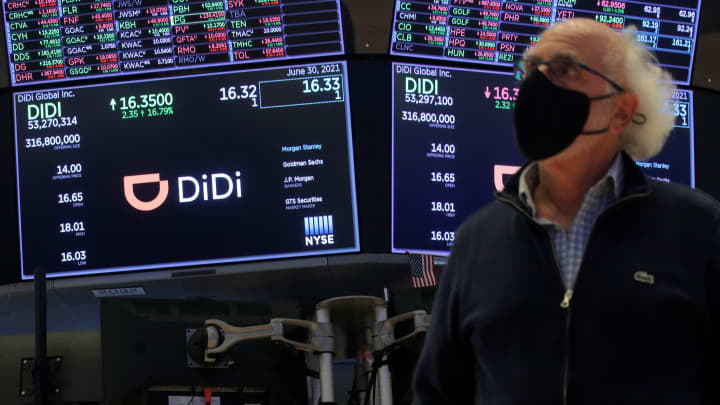What Does It Mean When a Stock is Delisted?
Oct 09, 2022 By Triston Martin
If a stock is delisted, it indicates that it has been withdrawn from an exchange, which means it is no longer traded on that particular stock exchange. A corporation can delist its stock voluntarily to pursue a strategic aim. Still, it is also possible for the firm to be removed from the market because it no longer fulfills the exchange's basic standards. One of the factors that might lead to a stock being delisted is when its price falls below $1 per share for a prolonged period.
What Happens to the Stock If It Is Delisted?
When a firm first request to be listed on an exchange, the exchange requires the company to fulfill specific listing standards. For it to continue to trade on the exchange, it must comply with certain rules. If a corporation is unable to fulfill these conditions, there is a possibility that it may be placed on probation.
While they are working to resolve any problems, companies currently operating under a probationary status are permitted to continue trading on the exchange. A "BC" is placed after the stock symbol in certain instances to indicate that the exchange regulations do not present the company. This is done to identify companies that are currently trading in violation of the rules.
The exchange notifies companies that are out of compliance with its regulations, and those companies have ten business days to react before the exchange moves through with the delisting process. That would be considered an involuntary removal from the list. After delisting the stock, it may continue to trade Over-the-Counter (OTC).
What Happens to Shares
Even when a stock is delisted from a major exchange, its shares can continue to be traded over the counter on the OTC bulletin board. Shareholders will still be able to trade the stock, even though market liquidity is anticipated to decrease. Shareholders should carefully evaluate stocks delisted from an exchange since this may indicate that the firm is experiencing financial difficulties and may soon be filing for bankruptcy.
Suppose the stock is no longer listed on public exchanges. In that case, shareholders may either be offered a buyout price or have their shares reorganized so that they may take part in the company's private equity holdings. When a firm goes from having a public status to having a private status, the shareholders are often given warrants, bonds, and preferred shares as compensation.
Is it Possible to Relist a Stock?
It is conceivable, but very unlikely, for a stock that has been delisted to be relisted on a major exchange eventually. To accomplish this goal, the firm would need to address every one of the problems that led to it being delisted in the first place. This would imply that it would need to find a solution to its financial problems, stay out of bankruptcy, and submit all appropriate documentation to become compliant again.

Example
One firm like Burger King that has been delisted, then relisted, and then delisted once again is an example. In 2010, the quick-service restaurant company voluntarily removed itself from trading on the New York Stock Exchange. The decision to delist was made after 3G Capital completed a private company purchase. After two years, the privately held company became publicly traded again and continued to do so for some time until merging with the Tim Hortons coffee shop network. Restaurant Brands International (QSR), the new business formed due to the transaction, has now begun trading on the Toronto Stock Exchange.

What Does the Term Delisted Stock Mean?
Equities can be removed from an exchange's list of tradeable stocks. "Delisting" refers to removing stock from circulation on an exchange. The operation occurs when a stock fails to satisfy the exchange standards or when a firm decides it no longer wishes to be publicly listed.
If the issuing firm were to fail to achieve the minimum requirements established by the exchange that the stock was listed on, the stock would be delisted from the exchange. For instance, if a firm like ABC Company had been listed on the NASDAQ Global Select Market for three years but had failed to achieve the income standards for the previous two years, the NASDAQ might remove that company from the market.





